- Home
- Fay Weldon
After the Peace Page 3
After the Peace Read online
Page 3
‘In fair round belly with good capon lin’d, with eyes severe and beard of formal cut, full of wise saws and modern instances, that’s us,’ Clive had said – there is usually a Shakespeare quote for every occasion.
The sign now hangs in the kitchen of No. 24. Rozzie would read it fifteen years or so later – she was to be a bright child, reading when she was three – and could be seen on occasion staring at her pot-smoking, life-exhausted parents in dismay.
Childhood Memories
Gwinny very much wanted the Smithsons’ dream of happiness to come true. She had moved back into her childhood home a year back, and found it not quite what she had hoped. Used to big spaces, she found herself now confined to smaller rooms than she remembered. She had cleverly managed to buy No. 22 the other side, the better to ‘break through’ and so, she hoped, double the square footage available – only to find the neighbours were appealing to the Land Tribunal on some spurious ground or another, and work had to stop. The end-of-terrace property on Gwinny’s other side, No. 24, was up for sale, but Gwinny could see that breaking through there would only run into the same difficulty. The neighbours were really not very nice at all, muttering, gossiping and pointing behind her back. A few remembered her in her teenage years. Those who remembered her as a child, when she was their little-girl midwife-helper, were all dead and gone.
‘Rich bitch,’ she heard someone say. And she once thought she heard ‘whore!’ behind her back but couldn’t be sure. It might be her schizotypal personality disorder raising its ugly head, one had to be careful. But now the Smithsons were moving in and she wanted dull little Standard Road to ring again to the sound of childish laughter, the pitter-pat of little footsteps – only girlish ones this time, skipping and hopping and trilling – not the biffs and bangs, the shouts, curses and fireworks of Gwinny’s four little brothers (little in birth order but not size), those tramplers of dreams, as they disturbed the peace of the street.
She had failed with her brothers, perhaps she would not fail this time? How she had longed for a little sister, though one by one, as a child herself, she had midwifed the boys’ appearance into the world. Geraint, Owen, Trefor, David – all home births in the front room of the house she now lived in. She, Gwinny, the eldest child, the only girl, had witnessed those pink, sticky, enormous, overpowering male genitals as one by one her brothers emerged from the stretched rawness of their tiny mother, and despaired. She’d so wanted a sister. But it was not to be.
In April the Smithsons moved in, along with smart new furniture from Habitat and lots of books and saucepans, Gwinny was pleased to see, and no smell of dope. She’d paid for a thorough cleanse of the house and garden, and a few minor repairs as soon as the sale went through so the young couple wouldn’t be faced with dirt, dust, spiders and strange smells when they arrived. She did it tactfully; nobody need know. She didn’t want to be seen as an interfering busybody. She was rewarded by the young couple’s smiling, cheerful, friendly faces, and indeed the sound of marital congress before the carpets were even down. The walls would need to be soundproofed but she could do that from her side. Surely the street would now cheer up.
The Smithsons had indeed turned over the new leaf they promised when Gwinny guaranteed their mortgage: they were settling down, starting a family, leaving the hectic life behind, just as Gwinny had, and going ahead with a wedding that was both celebrating the past and declaring their hope for the future. People were to talk about it for years.
A Failure Of Nerve
And just in time. I’d been on the brink of moving somewhere more appropriate for a wealthy aspiring artist than Standard Road when Clive and Xandra Smithson turned up, and I knew by the pricking of my thumbs they were right for the house.
I’d even begun looking for a property in Cheyne Walk – a notoriously good address – all kinds of famous and arty people had lived here, from Whistler’s mother to Dante Gabriel Rossetti, Holman Hunt to Thomas Carlyle and Mick Jagger, and I thought I would feel more at home there than I was in Standard Road. Fewer nasty remarks and whispers behind my back.
Sebastian was later to tell me the house I’d been looking at was where Sherwyn Sexton, his saintly grandmother Vivvie’s husband, had kept his artist mistress back in the 1930s, but it seemed too garbled a version of events long past to take seriously. The really interesting thing was that the house next door was up for sale and valued at £9,000,000. It was being cleared and there was a whole row of skips outside. Sebastian stopped the car to scrabble through them and search for a bargain (the rich love bargains) and saw an old purple crushed-velvet sofa with its innards falling out, which Sebastian claimed was a valuable antique. We put it in the boot – lucky it was a Rolls – and ran off with it. He said his daughter Victoria would love it.
But the real point was that when I looked at the next-door house in Cheyne Walk in 1986 it was up for sale at a mere £90,000. If I’d bought it I’d be really, really rich by now, but that wasn’t to be. There’s more to life than money. Well, it’s what they say.
The Smithsons moved into No. 24 on April 5th – I remember the date because it was Agnetha Fältskog’s birthday and I was a big Abba fan then.
A Question Of Bonding
They planned the wedding for Midsummer’s Day, Saturday, June 22nd. Just as well Xandra showed me the invitations before they went out; they had the day wrong. Midsummer that year was Friday June 21st. They had to decide whether to ditch the invitations and try again – they were very expensive and far too elaborate, I thought, all cut damask and silver foil (Clive’s choice), indeed rather vulgar. So I advised ditching and starting again with the same stationer I used for my wedding to Lord Petrie, who could turn out cards at twice the quality and half the price. It was a very expensive mistake and the Smithsons were terrible at budgeting, so I got more involved with their wedding preparations; six weeks to go and 250 people invited – it was a real undertaking, but now being on a Friday rather than a Saturday, I had to explain, would cut down the numbers considerably. In the end 179 came. Only six people had come to my own small, private wedding.
It was in these six weeks that we three really bonded, Xandra, Clive and I, and were indeed in and out of each other’s houses a lot, and green Harrods vans coming and going and causing congestion. Far from endearing me to the neighbours, as I had hoped, I had only inflamed their capacity to gossip. Though what exactly who was meant to be doing to whom was beyond my comprehension. I did my best to ignore the whispers and pointings down the street, my street, and Clive and Xandra seemed to be in blissful ignorance of anything untoward.
All in all the wedding ended up as quite an expensive business – though Clive was miserly in some respects, he could be lavish when it suited him – if only because he insisted on using Sandroyd & Hough in Mayfair to do the flowers that bedecked the trees, and not the local florist who would better understand what was required. But who cared. I had the money, they did not.
The Fabulous Wedding
On May 12th, a week after the invitations had finally gone off – hand-engraved copperplate from Baddeley Brothers, silver edged and with tissue-lined envelopes – both tasteful and luxurious – Gwinny cycled all the way over to West Hampstead, greying hair flying in the wind, old legs in bright yellow leggings pumping away, to find the Hellenism Reborn Centre. Here facilities for burnt offerings to the Gods were available, and she made there a sacrifice to the female deities – Flora, Demeter and Persephone. In her bike basket she brought a careful mix of Simkins One’s hair combings, white and ginger, brown and black (Simkins being Gwinny’s calico cat) on which to lay a freshly baked honey-filled apple cake, three liquorice sticks, some finely chopped fresh turmeric, some lupin seeds for sprinkling and a couple of firelighters. All these went on to the dedicated grate and were burnt to ashes, which she powdered, mixed with retsina and took home to share with the Smithsons. They might well push their glasses away but the merest sip would suffice.
Gwinny was going through a decidedly Ol
ympian polytheist phase at the time and it seemed the very least she could do, to ensure that the fruits of the Smithson union would be female. That, and asking for a verbal assurance that Clive and Xandra intended to have children, that the marriage would bear fruit, while signing the form which guaranteed their mortgage. This they happily did.
The wedding itself was a delight. 1986 was a tumultuous year – but then these days whenever is there a year that is not? The IRA were letting off bombs in London and all public waste paper bins had been removed; the Soviet Empire was suddenly beginning to collapse, and the technicians at Chernobyl were closing down their nuclear pile to see what would happen, but why worry, it was a gorgeous Midsummer’s Day on Hampstead Heath.
Gwinny still has the wedding photos in her album, and an actual portrait of the lucky pair stored in her attic. It is not a particularly good portrait – Gwinny’s paintings seldom are, and she is the first to admit it: but she trained at the Slade and has the spiel and the theory, and even a few fans – and when she offered the happy couple her portrait of them (three sittings and a couple of photos) as a wedding present and they suggested she keep it as a memento in her studio rather than have it grace their own walls, she quite understood. The new generations did not favour fauve canvases weighed down with layer upon layer of expensive oil paint, preferring thin watercolours and delicate lines in the same way they preferred a salmon mousse to roast beef and Yorkshire pudding.
What a fabulous retro-predigital-hippie-punk occasion the wedding on Hampstead Heath had been! It was the last gasp of the Age of Aquarius. Many who were present still believed that peace would rule the universe and that love would direct the stars, and retained a lingering belief that druggy altered consciousness would yet save mankind, or coming up fast on the inside, personkind.
Oh yes, it was a wonderful Midsummer’s Day! Sun shone and birds sang. Music played and people danced with all the hip-hop energy of the e-generation, and all troubles fell away as everyone remembered what it was to be young and rejoiced that they still were, or young enough, as the band played anything and everything that you could dance to and remember the words, whether the acid romanticism of the Beatles, the stoned classicism of the Grateful Dead, the smacked-out nihilism of punk and all stations in between. The band, the DreamyScreamers – electric bass, drums, guitar and amplified lute – played on a wooden platform over green, green grass on a flower-bedecked stage.
The sky was blue, strange expensive glorious flowers interweaved the trees, M&S catered so no-one was hungry and Oddbins so no-one was quite sober – cannabis fumes curled heavenwards and joined in with the scent of flowers so no-one could be gloomy. Everyone had dressed up at their best in honour of the happy couple, and look! Gwinny had abandoned her usual T-shirt, cycling leggings and beret for a Doric chiton in white linen with a gold chain belt. How they danced and smiled and hugged ecstatically upon the soft green sward, and if anyone looked up at the blue, blue sky and feared the radiation drifting over from Chernobyl, what wet blankets they were!
Clive was ever so tall and handsome in a white suit and green satin tie but a spectacular Mohican, which he ceremoniously shaved off when the cake (a Mocha from Louis’ Patisserie in the High Road) was cut: Xandra had arranged a pretty brown curly wig over her hitherto bald scalp, removed the nose ring which had caused such a nasty infection in the past, and now, wide-eyed and petite, was floaty and flowery in a flowing chiffon floral dress – more sixties than mid-eighties perhaps, but who cared? If some copulations went on in the bushes and a few ended up in pregnancies, all to the good. It was that sort of occasion. Gwinny was sure she glimpsed Flora herself amongst the dancers, tall and gracious, gowned in white muslin, one breast exposed, in a floral headband and carrying a horn of Greek flowers – though it might have been a bunch of exotic blooms of the kind Sandroyd & Hough provided. But when Gwinny looked again she was gone.
Xandra’s mother Anna Barker was there in formal mother-of-the-bride wear, pale green silk suit with wide shoulders and wide-brimmed white designer hat with ribbons and bows from Dickens and Jones, for her an unusual extravagance. She smiled bravely through the party, though she let it be known the whole thing was a wicked waste, and why her daughter wasted her time on these peculiar people she had no idea. She paid the £35.30 for the civil wedding in the Camden Register Office which followed and so made the Smithson union legal. She was relieved that the living in sin era had come to an end, and Clive was finally going to make an honest woman of her daughter, and with any luck herself a grandmother not to bastards, that terrible old word, but to legitimate children.
Gwinny paid £3,352 for the flowers: three times as much as she had bargained for, but Sandroyd & Hough turned out to be a very expensive florist. Not that she begrudged it.
Degrees Of Separation
Alas, Anna Barker is to outrun her luck and have her fatal stroke three years before Rozzie was born, in 1997. (1997. Albania almost collapses: 2,000 reported deaths. More trouble in the Congo: many more unreported deaths. In the UK a man with a friendly guitar sweeps to power and ‘things can only get better’.) Xandra is greatly grieved and Clive less so, remembering her mostly as the person who failed to guarantee the Smithson mortgage so Gwinny had to step in. The expected baby has not yet arrived and the nursery is soon used as a junk room.
Anna, had she lived, would have been pleased to know about the sperm bank, and that her granddaughter was not to inherit the genes of Clive, a man she had always mistrusted, but those of an aristocrat and a Dilberne at that.
As it happened, back in 1895, Anna’s grandmother Elsie, a simple Sussex girl, had gone into service at Dilberne Court as a parlourmaid. She was sixteen; a good post for a bright girl, a life in service being a far better option than working on the land, and the Dilbernes being known as good employers.
The young heir apparent of the house, Arthur, Viscount Hedleigh, was eighteen and had a roving eye. Youth calls to youth, and he did Elsie wrong, visiting her up in the maids’ attic, as later he was to visit the lady’s maid Grace of blessed memory. Elsie, young and foolish, was flattered and pleased by the attention, and might even have induced that attention with a flick of a leg and a frilly apron, for Arthur was a good-looking lad. But if we look back at the past with the eyes of the present we will see that considering the power-relations between the two – poor shivering maid, rich swaggering aristocrat – it was unforgiveable.
Elsie was very soon pregnant, since young girls a hundred years ago were kept in ignorance of contraceptive practices. But the Dilbernes, being a kinder family than many, didn’t throw Elsie out but chose to believe the father was Albert Barker, one of the young gamekeepers as she herself attested, sent her home to have the baby, leave it with her mother and return to work. Which she did, and Arthur kept out of Elsie’s way.
Gwinny believes – schizotypal personality disorder again showing – that family patterns return and return. We go on reliving our families’ pasts, even if it takes a sperm bank to do it. Up there in the Bardo Thodol those who decide seem determined to get all the stray Dilberne family members together again. Xandra has Dilberne DNA down the unofficial line, in order to reunite Rozzie back with the main branch.
It is more comforting, Gwinny thinks, to see some kind of mysterious plan up in the heavens, than to contemplate the total randomness of our couplings. Better a conspiracy, any day, than chaos.
Later Elsie was to marry Albert Barker, and he accepted the baby as his own. Just as Gwinny’s stepfather Aidan had accepted her, Clive accepted Rozzie. Gwinny herself, Gwen’s child, ends up living next door to Xandra, and the oddest things happen to bring that about. ‘What a coincidence!’ we cry, when this, that or the other happens, but of course it’s not. The little wheels of fate spin and spin, the big wheels revolve slowly but inexorably on. Only occasionally do we get to notice the gearings.
Many a hidden coupling went on in those large estates. They do say Mrs Thatcher’s mother was a young maid up at the local great hou
se, knocked up by a neighbouring lordship in 1925, but who saw her right, and married her off to the local grocer, so she ended up with DNA which made her fit to govern, however eccentrically.
Gwinny helped Xandra sort out Anna’s possessions after her death and they came across a silver-rimmed cut-glass bowl of considerable value, given to Xandra’s great-grandmother Elsie, so Barker family legend had it, by none other than Lady Adela Ripple herself (as a bribe to keep quiet about some scandal or other, possibly concerning Elsie’s own parentage). Adela Ripple herself was of the true Dilberne blood line, and had gone down in Dilberne history, as Sebastian was later to tell Gwinny, as a lewd and ruthless but very beautiful and seductive person. Born 1884, died 1944, she was grandmother to Mallory – now living in Dilberne Court, in her nineties. Which does make Rozzie the more likely to be a Dilberne on both sides, if so diluted by other blood lines it hardly counts. Except perhaps in the Bardo Thodol.
Secret sexual acts have singular reverberations throughout the universe: secrets are so seldom kept. Women always tell, mid-row or mid-divorce. ‘I slept with him and you didn’t even notice. And he was much better than you, I can tell you! ’ And men as well. ‘I slept with her, of course I did, why are you surprised, you frigid bitch? ’ – and then everyone suffers; he, she, him, her, but most especially the children. The Gods themselves take notice.
Up in the Bardo Thodol non-substantial ears prick up. Adela Ripple stirs in her slumber and comes out to cause further damage. Sperm bank fathering no doubt creates more complexities as well as opportunities in the timeless, spaceless realms of the Bardo Thodol, where souls queue to choose their destiny, the parents to whom they will be born. Christian doctrine of course frowns at the spilling of sperm, but perhaps storing it in a test tube is a lesser offence. Perhaps Onan in the Book of Genesis was more sinful than Sebastian Hedleigh in the late twentieth century AD.

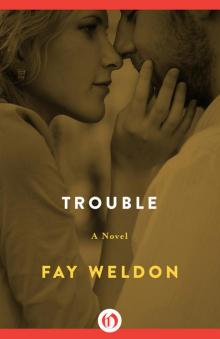 Trouble
Trouble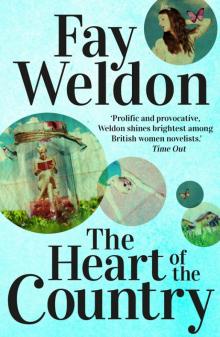 The Heart of the Country
The Heart of the Country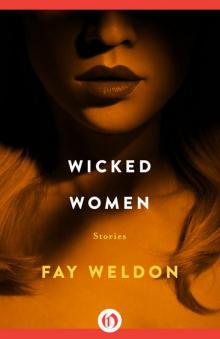 Wicked Women
Wicked Women Mischief
Mischief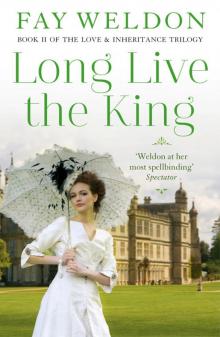 Long Live the King
Long Live the King Remember Me
Remember Me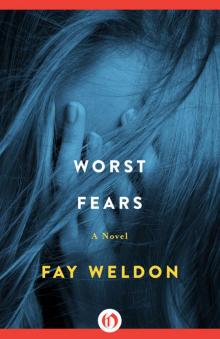 Worst Fears
Worst Fears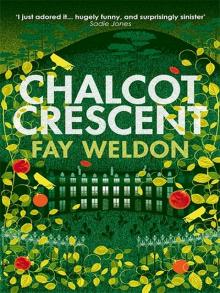 Chalcot Crescent
Chalcot Crescent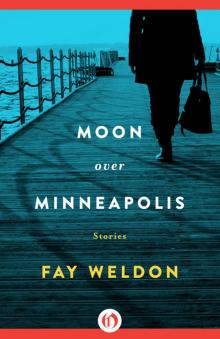 Moon Over Minneapolis
Moon Over Minneapolis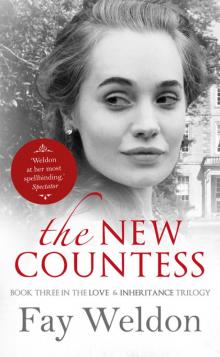 The New Countess
The New Countess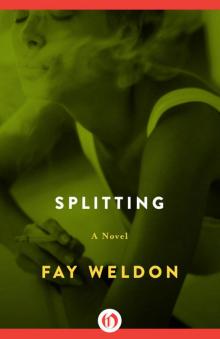 Splitting
Splitting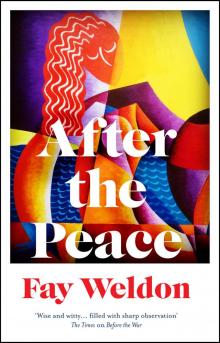 After the Peace
After the Peace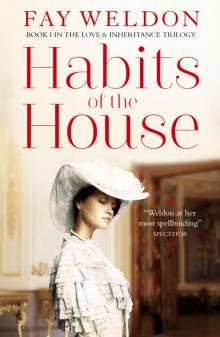 Habits of the House
Habits of the House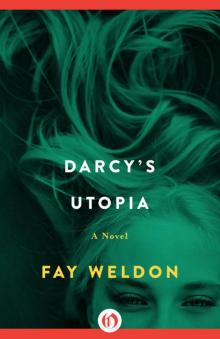 Darcy's Utopia
Darcy's Utopia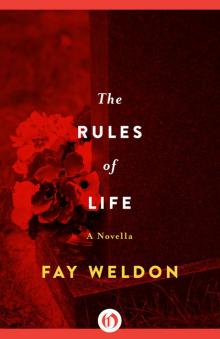 The Rules of Life
The Rules of Life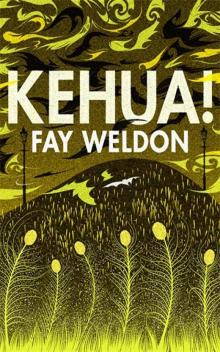 Kehua!
Kehua!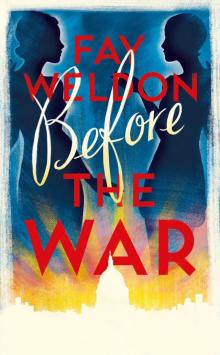 Before the War
Before the War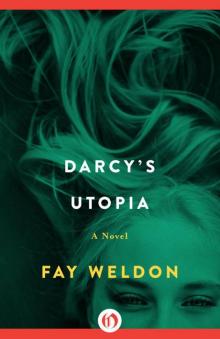 Darcy's Utopia: A Novel
Darcy's Utopia: A Novel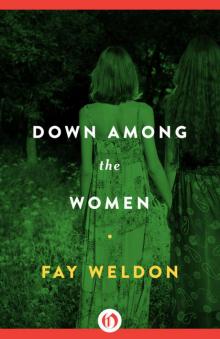 Down Among the Women
Down Among the Women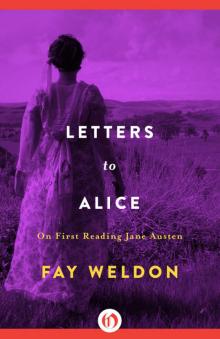 Letters to Alice
Letters to Alice 3 Great Historical Novels
3 Great Historical Novels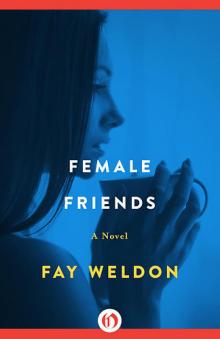 Female Friends
Female Friends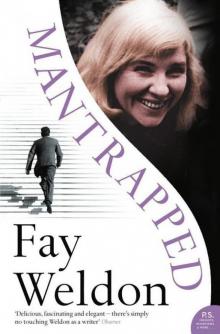 Mantrapped
Mantrapped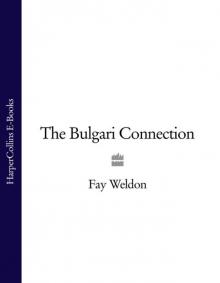 The Bulgari Connection
The Bulgari Connection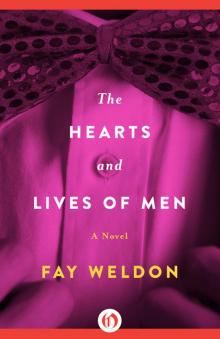 The Hearts and Lives of Men
The Hearts and Lives of Men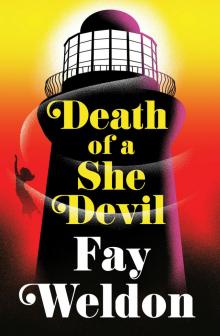 Death of a She Devil
Death of a She Devil